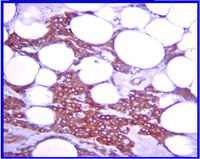Glutamine modulates lipopolysaccharide-induced activation of NF-κB via the Akt/mTOR pathway in lung epithelial cells.
Hou, YC; Chiu, WC; Yeh, CL; Yeh, SL
American journal of physiology. Lung cellular and molecular physiology
302
L174-83
2012
요약 표시
Lung epithelial cells are important barriers in the respiratory system that provoke inflammatory responses through nuclear factor (NF)-κB activation to prevent pathogens from invading the body. Lipopolysaccharide (LPS) is a common pathogen-associated stimulus that activates IκB kinase (IKK) to regulate NF-κB-mediated inflammation through modulating nuclear translocation and phosphorylation of NF-κB. Previously, it was shown that Akt and the mammalian target of rapamycin (mTOR) are involved in the phosphorylation of IKK to activate NF-κB. Herein, we demonstrate that glutamine (GLN) modulated LPS-induced activation of NF-κB through the Akt/mTOR/IKK pathway in BEAS-2B cells. BEAS-2B cells in submerged culture were placed in medium containing different concentrations of GLN (0, 0.5, 1, and 2.5 mM) with 1 μg/ml LPS. Results showed that GLN deprivation induced phosphorylation of Akt/mTOR/IKK signaling, increased levels of NF-κB nuclear translocation and phosphorylated NF-κB, and upregulated NF-κB-dependent transcriptional activity, which was suppressed by GLN administration. Expressions of NF-κB-targeted genes were also reduced by supplemental GLN. GLN administration improved cell viability, whereas 0.5 mM GLN had a greater extent of inhibition on the Akt/mTOR/IKK/NF-κB signaling cascade. The inhibitory effects of GLN on NF-κB activation were also observed in cells cultured under air-liquid interface condition. These results indicate that GLN deprivation increased LPS-induced NF-κB activation and transcriptional activity, which was reversed by GLN administration. The findings provide potential mechanisms of GLN's modulation of LPS-induced NF-κB activation in lung epithelial cells and imply that maintaining a physiological concentration of GLN is essential in preventing LPS-induced lung inflammation. | 22003094
 |













